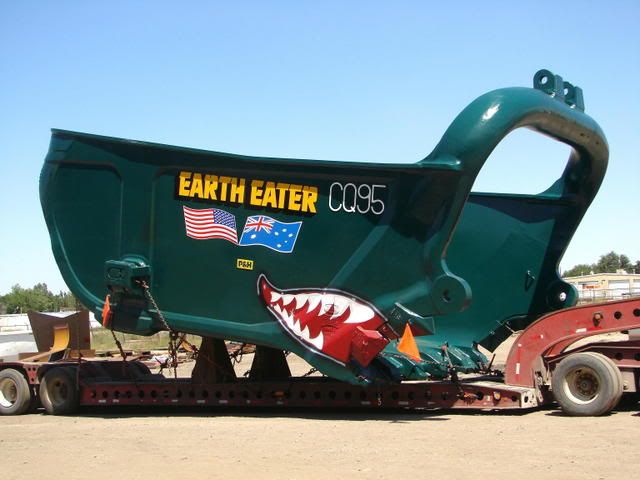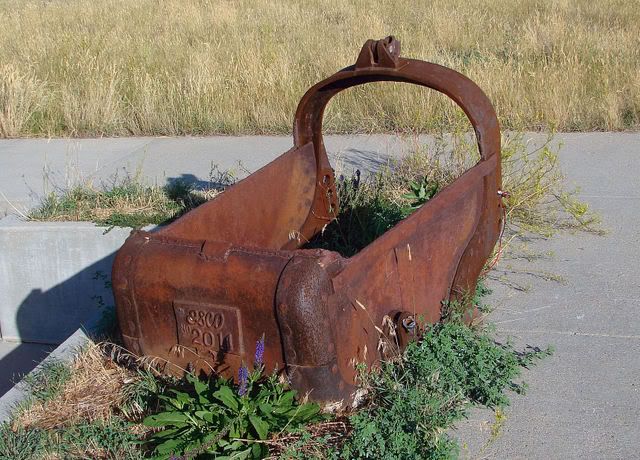
Formalloy 400 Similar alloy brand trade marks: Oregon AR 400(tm), Ameriwear 400(tm), AR 400Chapalloy 400(tm), Hardox 400(tm), Hardware 400(tm), Centrex Rhino Tuf(tm), Wearalloy AR400(tm)
It's a Quench & Tempered, Abrasion Resistant (AR) steel...
C 0.16/0.25, Mn 1.50, P 0.025, S 0.010/0.015, Si 0.50, Cr 0.60, Mo 0.60, Boron 0.003
Tensile 180 ksi (1240 MPa), Yield 155,000 psi, (1070 MPa), BHN 360/440
T-1 is a QT-100, ASTM A514 Grade S or other letters.
C 0.20, Mn 1.50, P 0.03, S 0.015, Si 0.45, Mo 0.40, B 0.0005/0.005
Tensile 110 ksi (760 MPa), Yield 100,000 psi, ( 700 MPa), BHN 235/293
http://www.principalmetals.com/utilities/periodic.htmHere are some links:
http://www.imac.ca/technofocus/imac%20internal%20lingo.htmhttp://www.wilkinsonsteel.com/CarbonMildSteel/Plate/QT_WearPlate.htmhttp://www.jewellattachments.com/products_details.asp?Product_Id=423Here's a local producer just north of where I live... Makes a slightly different type of Q&Tsteel.
http://www.jadco-inc.com/qt_plus.phpA local mill just south of me:
http://www.chapelsteel.com/t-1-321-t-1-360.htmlhttp://www.chapelsteel.com/a514.htmlhttp://www.chapelsteel.com/ar400-ar360.htmlhttp://www.chapelsteel.com/ar400f.htmlhttp://www.chapelsteel.com/products.htmlAnother company in Arizona:
http://www.escocorp.com/heflin_steel/wear/materials.htmlhttp://www.escocorp.com/engproducts/mining/index.htmlFrom Tuscaloosa, Alabama!!!: (Had a girl from there once! ;) ):
http://www.hardsteel.net/english/product_guide/PDF/wearres_plate.pdfhttp://www.hardsteel.net/english/product_guide/index.htmlHope this helps you in determining the differences and variety of producers for both of these gardes of steel! :) :) ;)
Respectfully,
Henry


